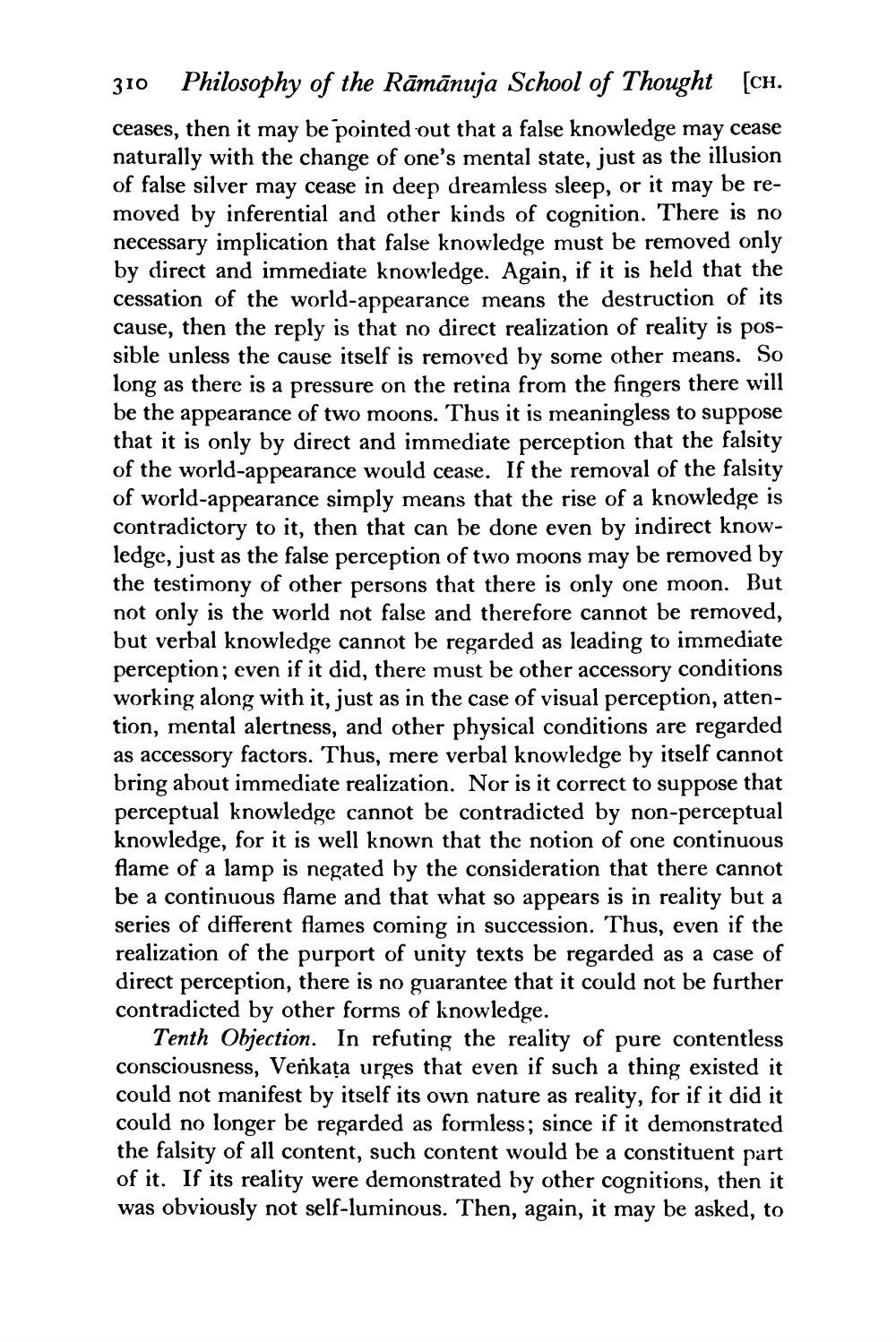________________
310 Philosophy of the Rāmānuja School of Thought [CH.
ceases, then it may be pointed out that a false knowledge may cease naturally with the change of one's mental state, just as the illusion of false silver may cease in deep dreamless sleep, or it may be removed by inferential and other kinds of cognition. There is no necessary implication that false knowledge must be removed only by direct and immediate knowledge. Again, if it is held that the cessation of the world-appearance means the destruction of its cause, then the reply is that no direct realization of reality is possible unless the cause itself is removed by some other means. So long as there is a pressure on the retina from the fingers there will be the appearance of two moons. Thus it is meaningless to suppose that it is only by direct and immediate perception that the falsity of the world-appearance would cease. If the removal of the falsity of world-appearance simply means that the rise of a knowledge is contradictory to it, then that can be done even by indirect knowledge, just as the false perception of two moons may be removed by the testimony of other persons that there is only one moon. But not only is the world not false and therefore cannot be removed, but verbal knowledge cannot be regarded as leading to immediate perception; even if it did, there must be other accessory conditions working along with it, just as in the case of visual perception, attention, mental alertness, and other physical conditions are regarded as accessory factors. Thus, mere verbal knowledge by itself cannot bring about immediate realization. Nor is it correct to suppose that perceptual knowledge cannot be contradicted by non-perceptual knowledge, for it is well known that the notion of one continuous flame of a lamp is negated by the consideration that there cannot be a continuous flame and that what so appears is in reality but a series of different flames coming in succession. Thus, even if the realization of the purport of unity texts be regarded as a case of direct perception, there is no guarantee that it could not be further contradicted by other forms of knowledge.
Tenth Objection. In refuting the reality of pure contentless consciousness, Venkata urges that even if such a thing existed it could not manifest by itself its own nature as reality, for if it did it could no longer be regarded as formless; since if it demonstrated the falsity of all content, such content would be a constituent part of it. If its reality were demonstrated by other cognitions, then it was obviously not self-luminous. Then, again, it may be asked, to




